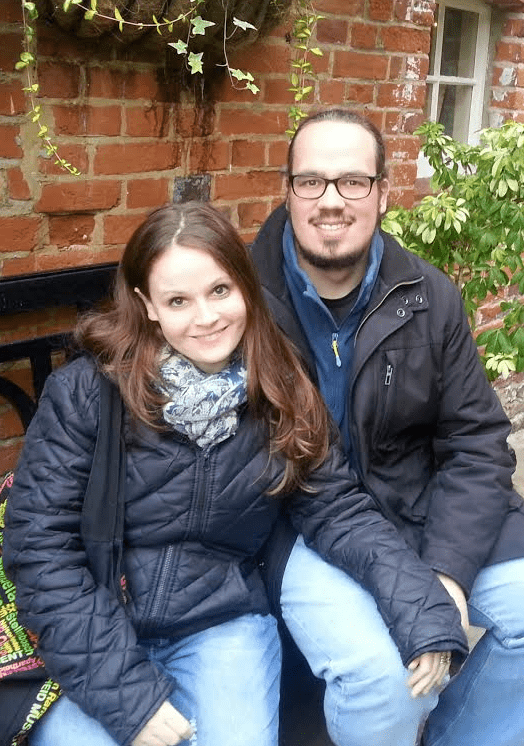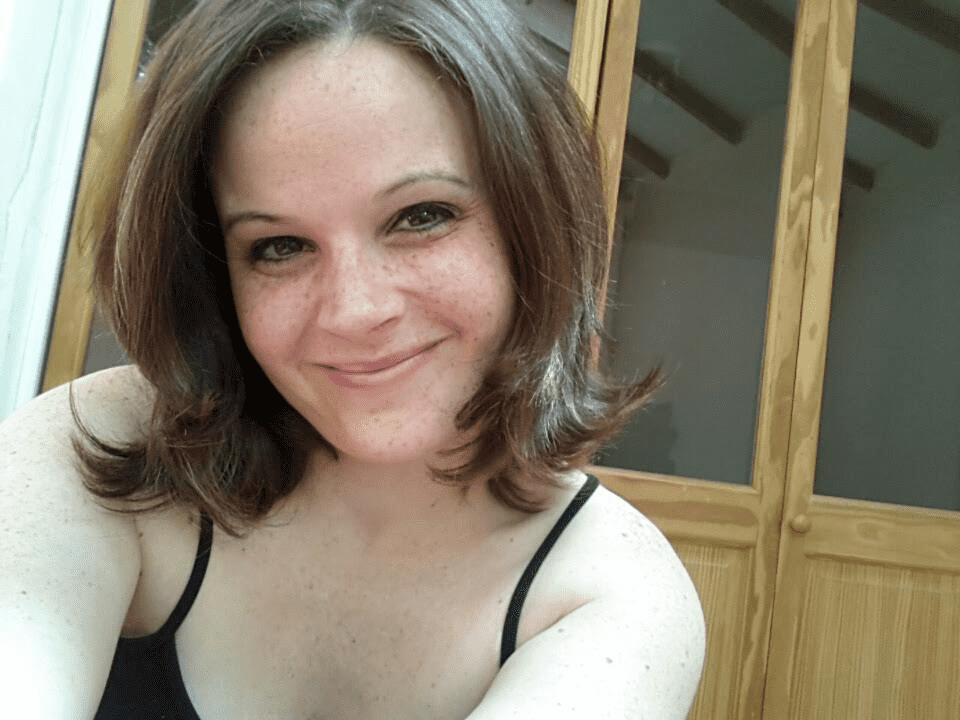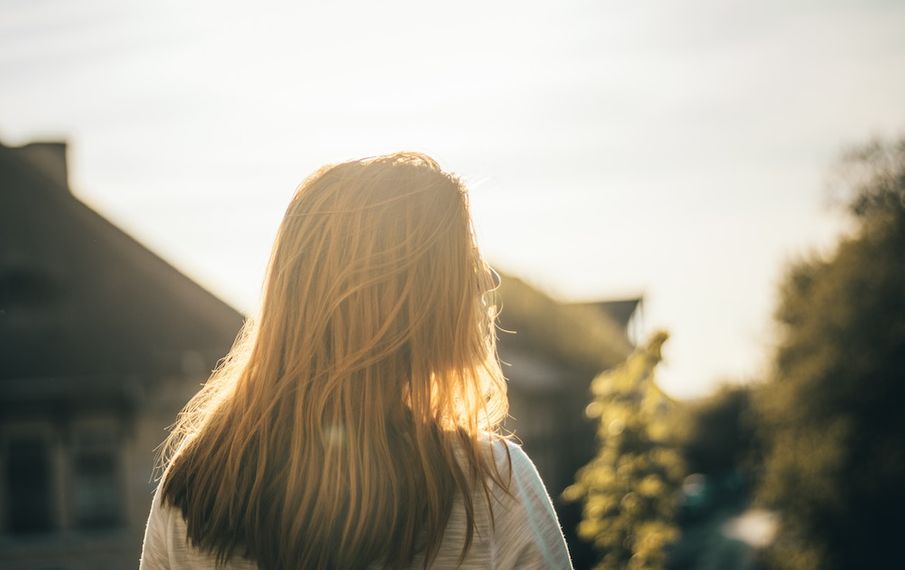Severe anxiety, alongside depression, left Mel panic stricken, and affected her daily life. While she had reservations initially, professional support and medication gave her a platform to begin her recovery
From when I experienced my first anxiety attack 18 years ago, my journey includes being hospitalised in a psychiatric ward, five psychiatrists, three psychologists, antipsychotic medications, contemplating suicide, experiencing two huge relapses, and many little ones as well.
Those times were worse than tough. In my first book, My Anxiety Companion, I actually described myself as being ‘dead’ because I was dissociated from the world around me, and felt so utterly hopeless and anxiety stricken that I had given up every last shred of hope within me. So if someone had told me that 18 years later I would be happy, healthy, married, living in a different country, and writing books on how to recover from anxiety disorder, I would never have believed them!

Mel and her husband
Looking back now, I realise that I was always an anxious child. However my first big anxiety attack was in 2001 when I was 18, and was triggered by a movie. To this day, I have to be extremely careful with what films I expose myself to. It’s still difficult for me to speak about, but I noticed that instead of the anxiety from the movie gradually going away, it actually got worse. I started to experience really terrifying irrational fears, developed a fear of people in general, chest tightness, muscle tension, and a horrible knot in my stomach – constantly!
My best friend didn’t understand, and I was too embarrassed to tell anyone else, because not even I understood what I was feeling. Of course, now I have come to realise that anxiety disorders have two main foundations: fear of the unknown, and irrational fears.
The symptoms got worse, and I started to display some odd behaviour, feeling emotions I’d never felt before. It was too much for me to handle, and by that stage, my mom and dad found out. They tried to ease my worry, and we just boiled it down to being scared of the ‘unknown’ in my final year of high school.
But it didn’t get better.
It got worse. It got ugly, and it got absolutely heart-wrenching.
By this stage, depression had also taken hold of me, making daily life so unbearable that I refused to get out of bed.
I ended up in hospital, was put on antipsychotics, and saw three different therapists. However, as soon as I was starting to feel better and trying to get on with life, the anxiety would hit again. Only now it was 10 times worse than before.
Not only did I have numerous raging anxiety symptoms, from palpitations, to sweating, tinnitus, dizziness and shaking – you name it, I had it – I also experienced dissociation, strange behavioural changes, and suicidal thoughts, even begging my mom, who’s a nurse, to assist me in killing myself.
In July 2008, I married an amazing guy, but the first year of marriage was hell. My new husband was more of a carer than a spouse, and by 2009 it got to a point where my symptoms prevented me from being able to do basic things like drive, cook and bathe. Nights were the worst, and I would often wake up panic stricken and try to hit my husband from pure fear.
It was a struggle just to live, and all I wanted was to die.
Anxiety disorders can be complex to treat, but this doesn’t mean that they are not treatable
My family frantically tried to find help for me, and eventually I did get it. My first point of contact was a highly recommended psychiatrist. I was feeling so utterly hopeless at this point in time, but I will always be grateful to this psychiatrist as the medication she prescribed really was the turning point for me. I’ve always been a ‘natural way’ sort of person, but I now do believe that conventional medication does have its place in this world, and in mental health it can be a life-saver.
As much as the medication helped, I was on some pretty harsh stuff and in high dosages, including an antipsychotic, and I wanted to try to get down to as minimum a dosage as I could.
I realised how much medication can help you, and it’s something I want to point out to other anxiety sufferers. It’s like a hoist that lifts you up off a crumbling cliff, but it’s only that – a stepping stone. Anxiety disorder recovery is so much more than just taking a pill every day.
I began to do some investigation in actually retraining an anxious mind. In the end, my help came from an assortment of medications, natural remedies, therapy, and courses. But what helped the most was realising that my own thought patterns were to blame, and it was how I was reacting to those thought patterns that made all the difference.
As I sit here, telling you this, it is unbelievable to think as to how severe my anxiety disorder really was, and I am determined to never let it swallow me up like that again. I’ve learnt that anxiety disorders can be complex to treat, but this doesn’t mean that they are not treatable. It only means that they are not quick to fix.
The courage that is needed to stand up and say: ‘I have a mental illness’, is not easy, but you cannot fully focus on getting well if you are treating it from an arm’s length. It needs to be accepted as a part of you, but also know that mental illness does not define you, and it never will.

I have also learned that medication is not the enemy many people make it out to be. It played a huge role in saving my life, and provided the short-term relief to enable me to regain enough strength and focus to decide on a long-term treatment plan.
As I began to withdraw from the medication, I was able to find holistic treatments that I still use to this day. Treatment for mental illness is so varied and it can take trial and error before you find one that works for you.
Today, I describe myself as a recovered anxiety disorder sufferer, but I am not cured from the small anxious moments that creep up on me every now and again. I remain on a minimal dosage of only one anxiety medicine, which is a withdrawal from more than 80% of what I was on. The difference now is how I handle those anxious moments, and how I react to them.
Anxiety is all about thought processes, and I am now able to control the anxious thoughts before they take hold of me – it’s a truly liberating feeling. I am the happiest that I’ve ever been, and my message to anyone who has a mental illness is to show them how they too can be happy and healthy, even with a diagnosis.
No matter how severe your anxiety disorder is, there is always hope for you.
Graeme Orr | MBACP (Accred) UKRCP (reg) Reg Ind counsellor, says:
Mel found her chronic anxiety initially difficult to understand, and embarrassing to share. Her fear of the unknown made her life unbearable. Medication gave her the breathing space to recover, and she realised that she needed to work on her reactions and thought patterns. Helped by medication, she found treatment options that worked for her. Often a combination of tools (medication, therapy and challenge) will help us overcome our anxiety. Now, she is in a place of hope.


Comments